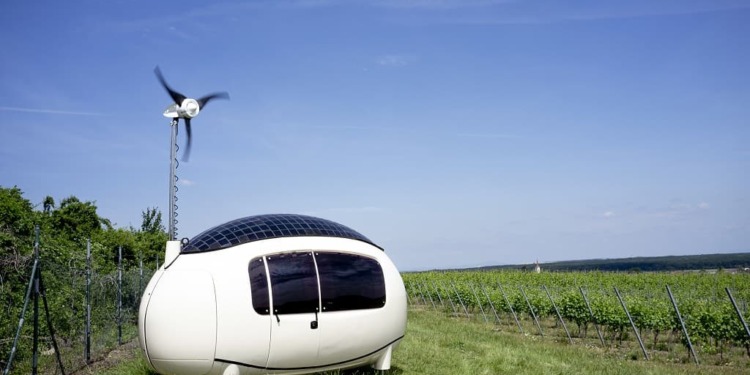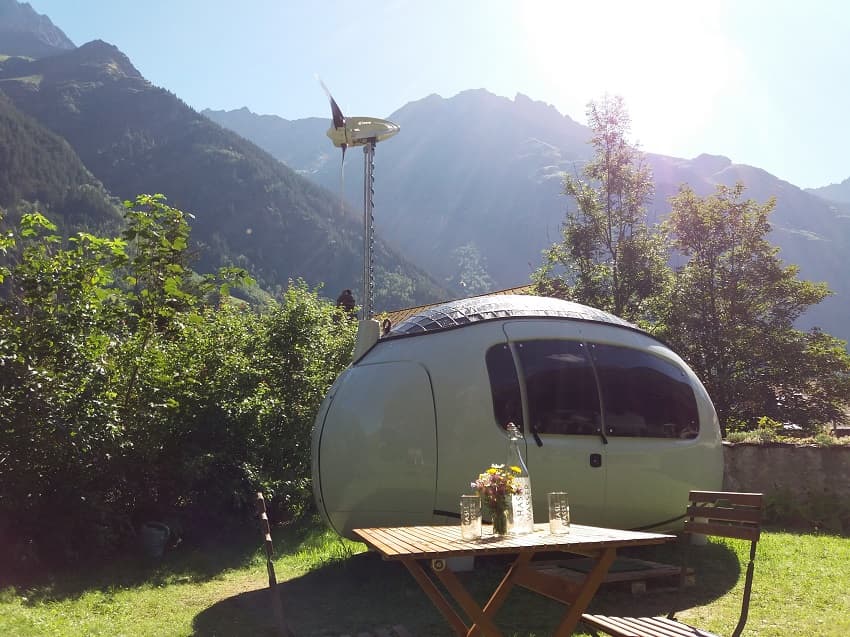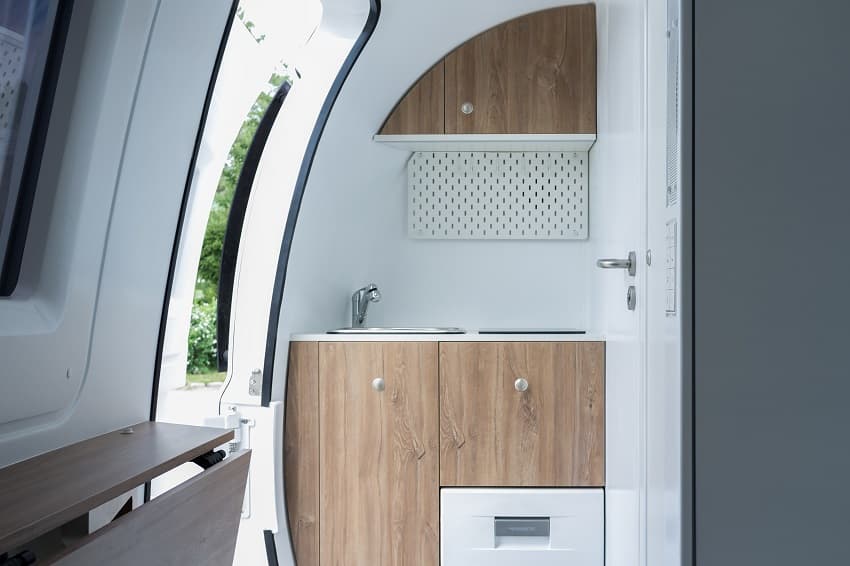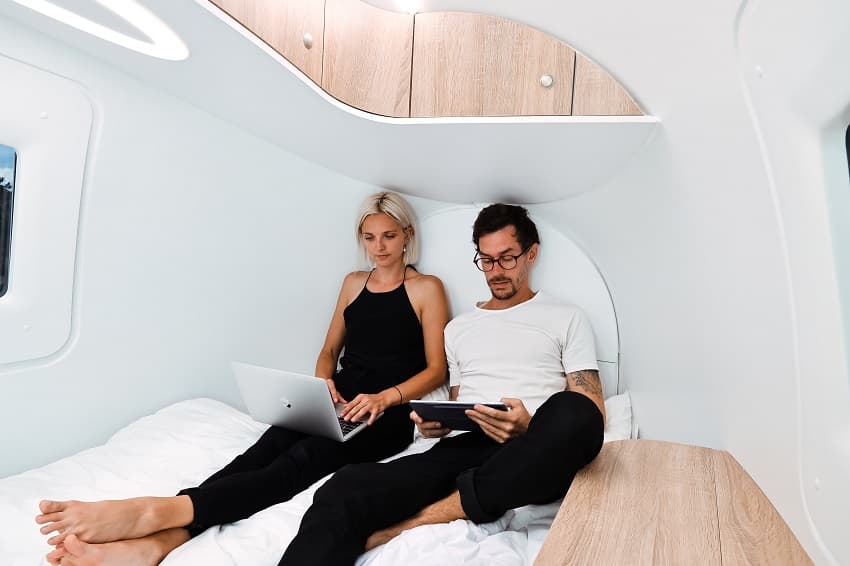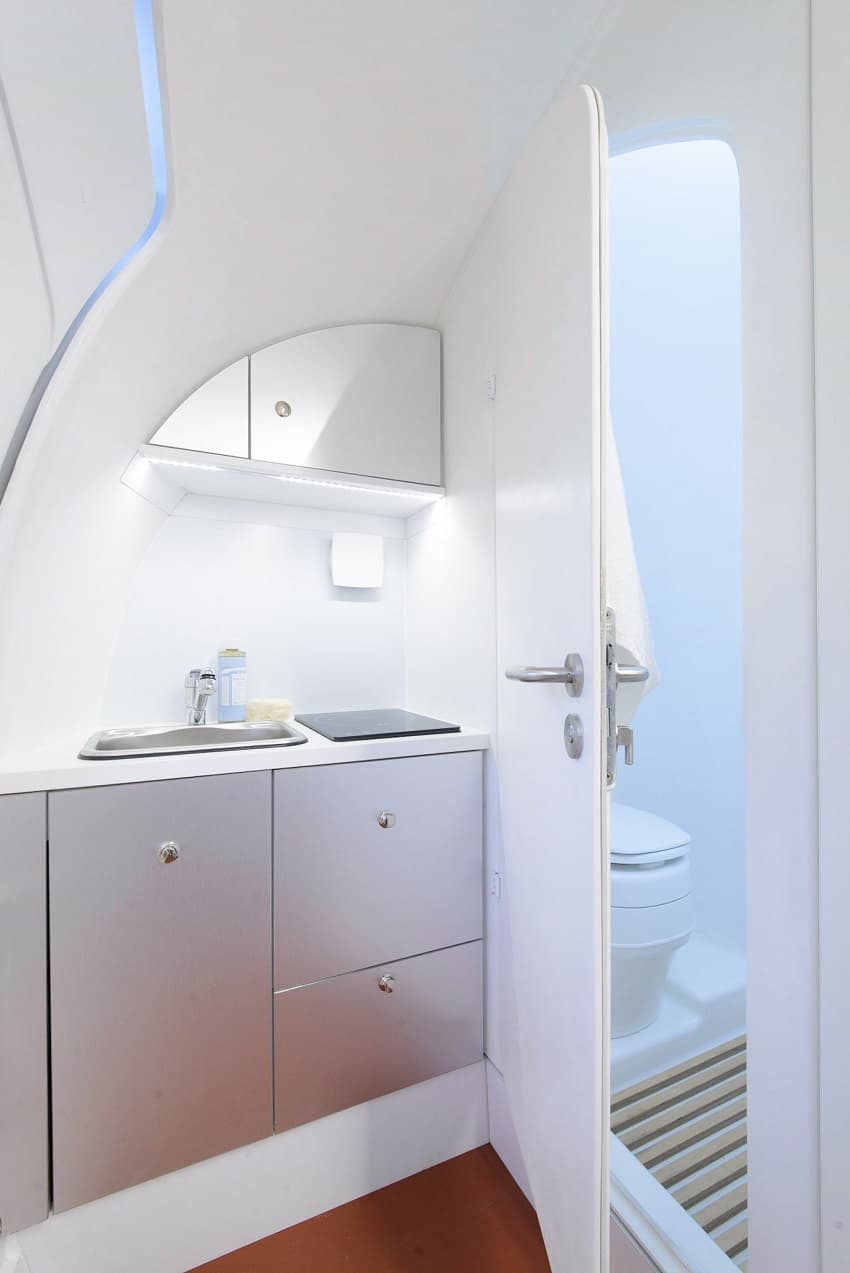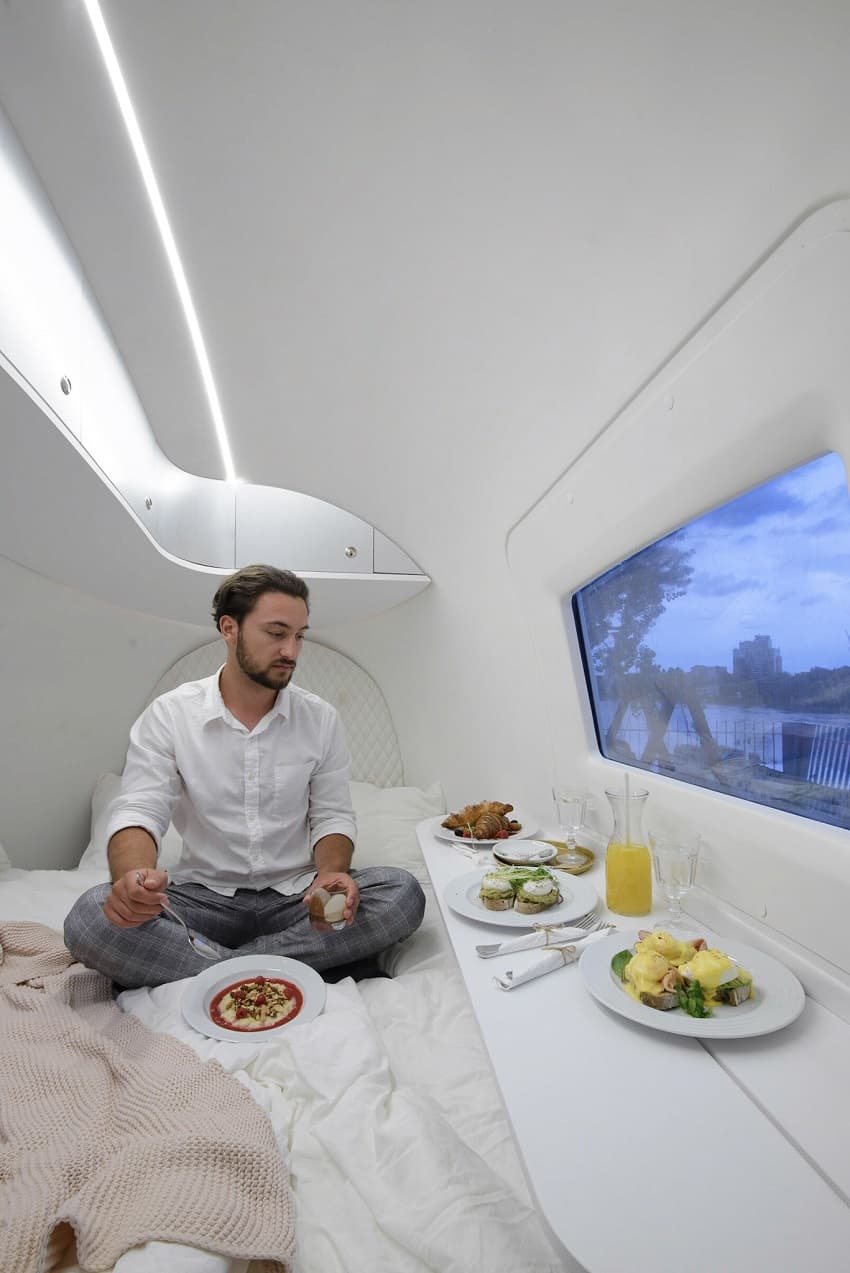Have you ever thought about owning a small sustainable living space? Or just being able to enjoy the outdoors without having to think about the need for electricity or water? If so Ecocapsule could be the perfect choice for you.
Ecocapsule Story
It all started when the architectural studio Nice Architects entered the Andes Sprout Society Idea Competition. They had the task to design a small housing unit for an artist on a piece of land with no infrastructure.
Although the project did not win the competition it attracted the interest of many because of its very distinct design. This pushed the architects to keep working on this project.
The first prototype was completed in 2014. Nowadays, while working on improving the current Ecocapsule the designers are also looking into other applications of some of the concepts from the Ecocapsule.
RELATED ARTICLES: Hydronic Shell Technologies: Retrofitting buildings to net-zero emissions | The Top 5 Green Building Words of 2020 | An Interview With RE49: Re-Turning to 1949 | Interview With Peace and Skin: Skincare as a Stress-Relief |
Ecocapsule technical specifications
The current Ecocapsule is 4.70 m long, 2.20 m wide and 2.50 m tall. It weighs just over 2,000 kg (with empty tanks). It is equipped with a wind turbine that generates up to 750 watts, meanwhile, solar panels on the rooftop could generate a maximum of 880 watts. The battery capacity is 9.6 kWh.
The design aims to maximize the collection of rain and dew. The water then goes through filters that transform it into clean water. The outer shell minimizes energy loss, while walls are filled with highly efficient thermal insulation materials.
The Ecocapsule interior
The interior of the Ecocapsule is equipped with a kitchenette, a bathroom with a shower, and a space that serves as a living room but also converts into a bedroom and possibly an office. There are 6.3 square meters of inner space available in this tiny space.
The Ecocapsule doesn’t have to be used necessarily for remote outdoor living. It could become also a pop-up hotel, a mobile office, a research station, and much more.
The design allows for making transportation easier. From being able to load it by a single person on a trailer to converting the Ecocapsule into a floating home there are endless sustainable living options.
Editor’s Note: The opinions expressed here by Impakter.com columnists are their own, not those of Impakter.com –All photos credit: Ecocapsule.


